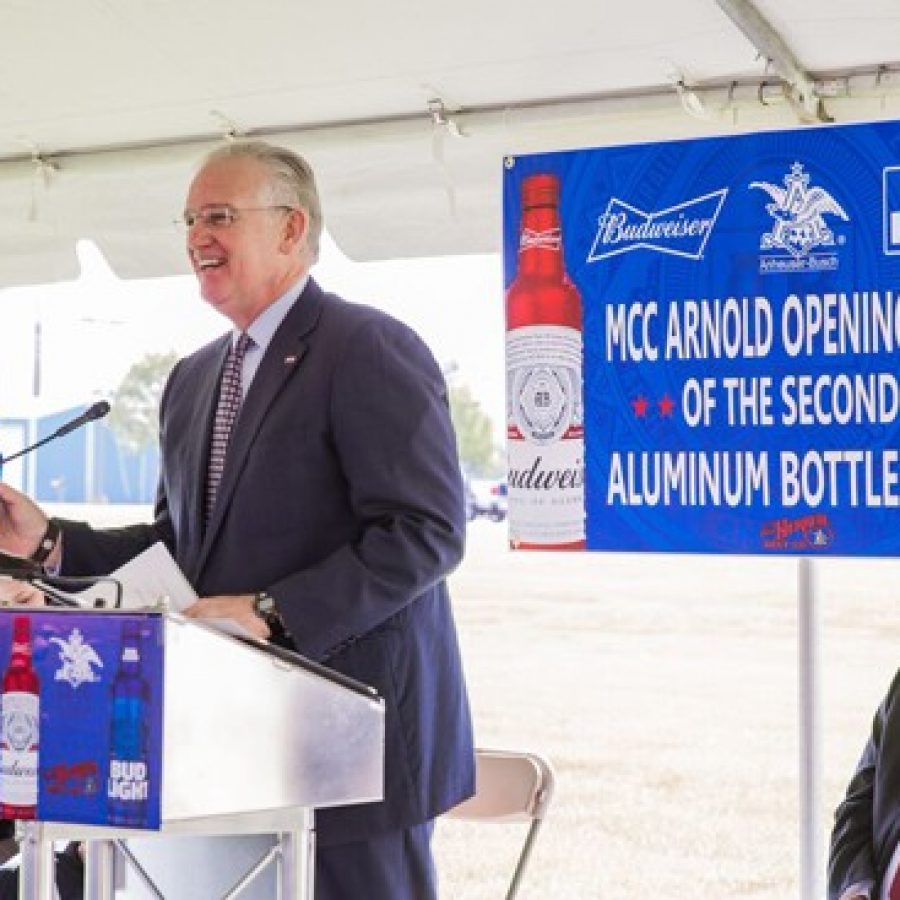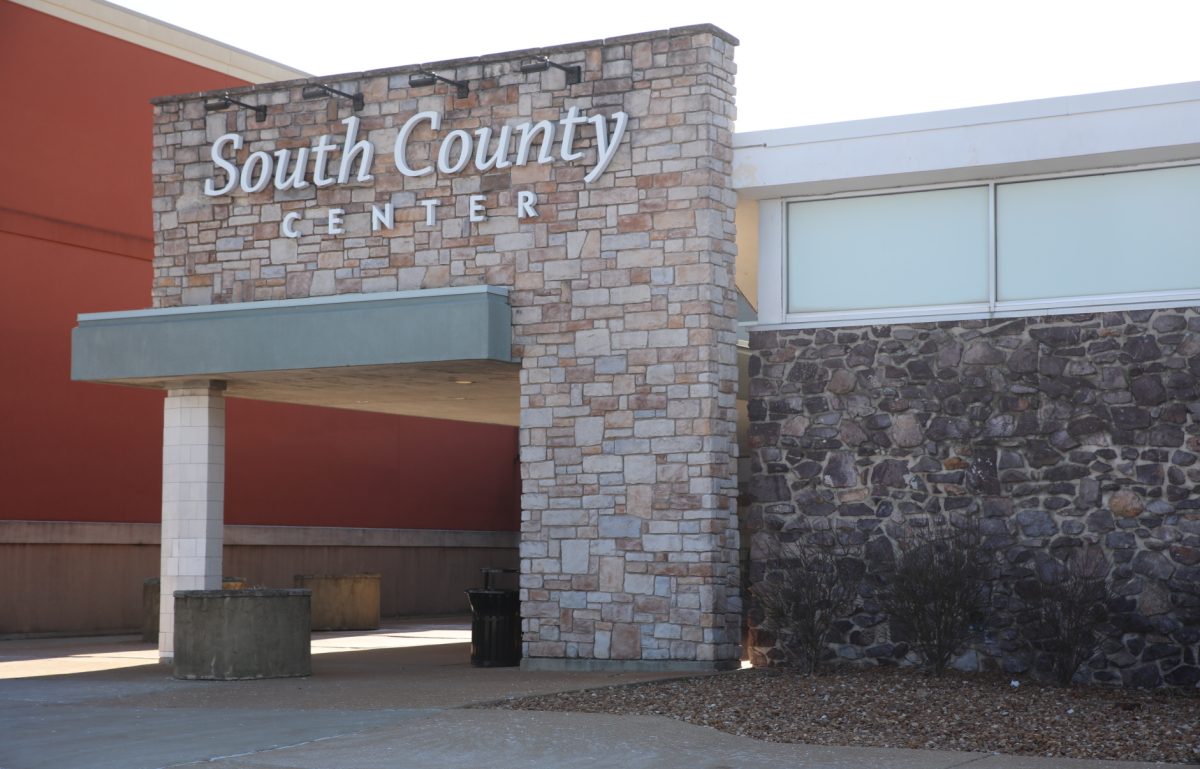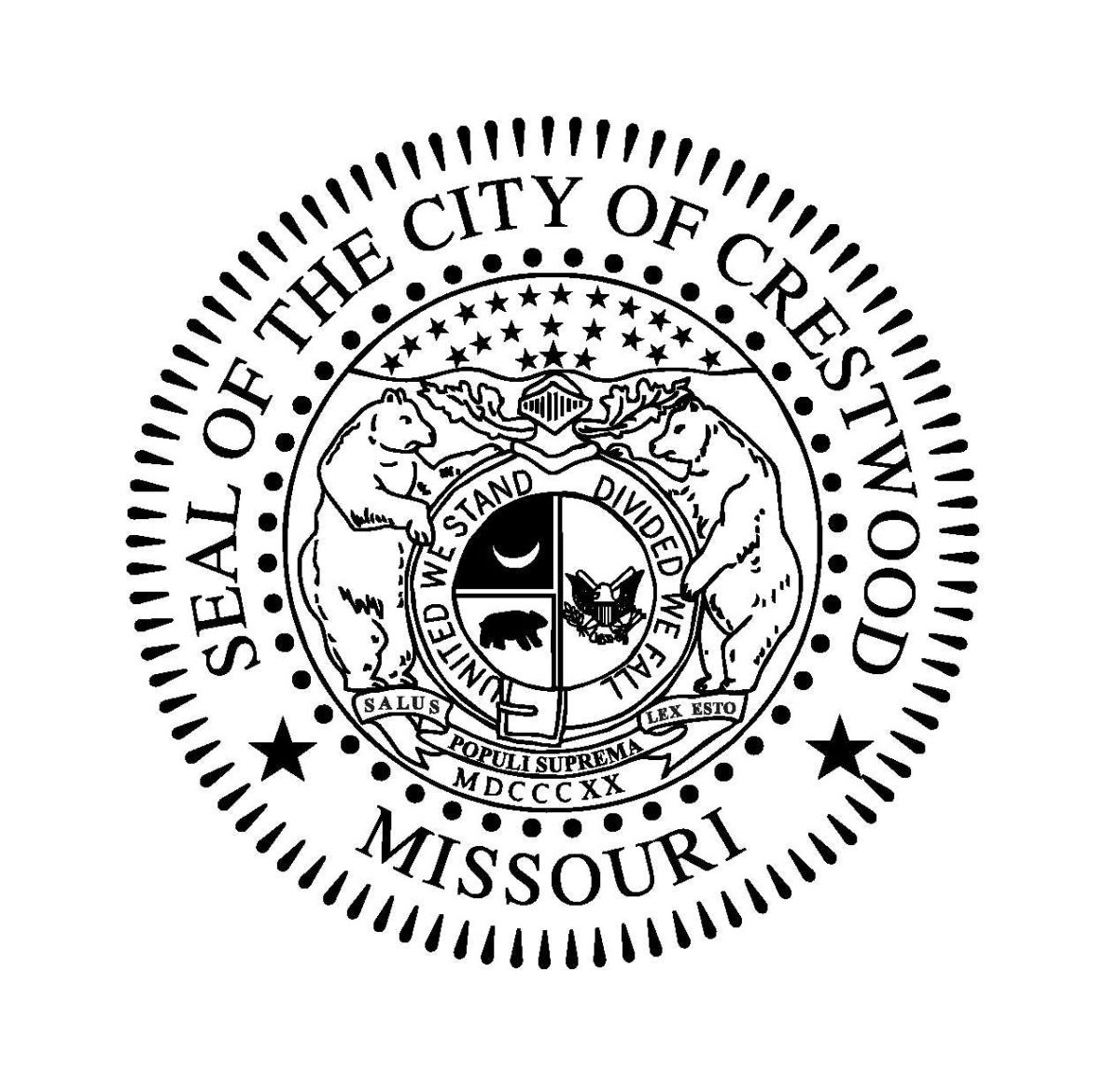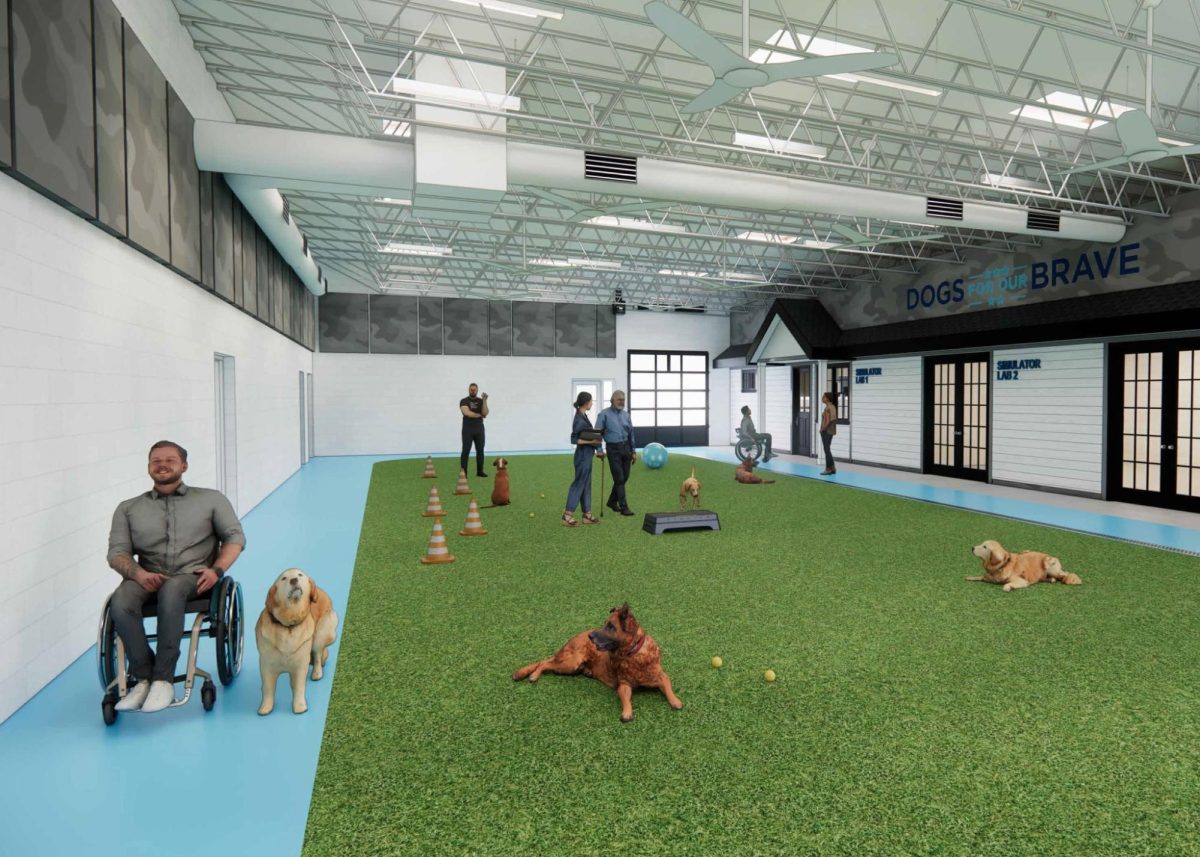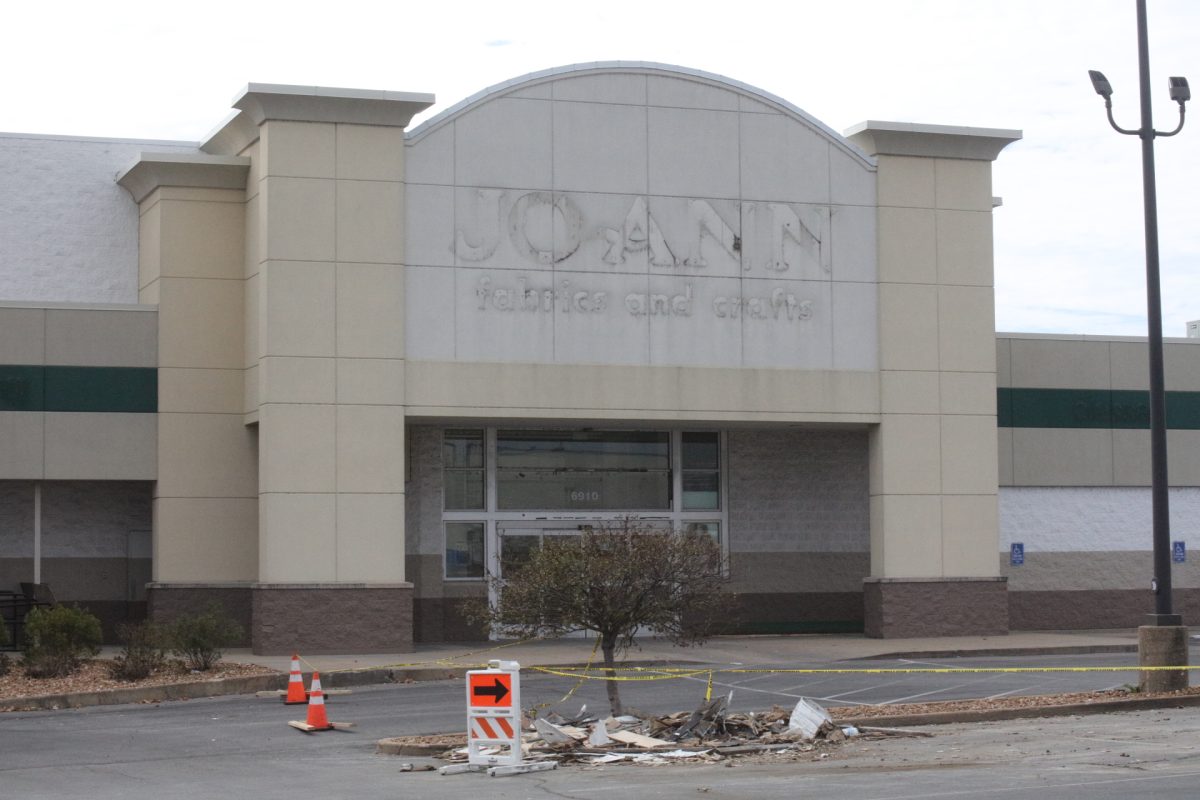Bud Light in hand, Gov. Jay Nixon celebrated the recent opening of a new $160 million Anheuser-Busch aluminum-bottle line at the Metal Container Corp. plant in Arnold, recalling when he installed the original water and sewer lines himself and crediting local officials for the tax incentives funding the expansion.
The new 88,000-square-foot bottling facility will add 70 full-time jobs at the MCC aluminum-can plant at 42 Tenbrook Industrial Park, which opened in 1979, for a total of 300 jobs. When the expansion is fully operational, Arnold will produce one-fourth of the nation’s aluminum cans, Nixon noted. The line will double the plant’s production of aluminum beer bottles to 2,400 bottles a minute from the current 1,200.
The new production line is spurred by A-B’s 2014 launch of Bud and Bud Light aluminum beer bottles, which are perfect for baseball games and popular with consumers because they are more streamlined, recyclable and lighter than traditional glass bottles and come with twist-off caps that can be resealed.
Sales are up 30 percent year-on-year, and the new bottles are the most popular innovation A-B Chief Supply Officer Pete Kraemer said he’s seen in his 27 years with the company. Overall, Anheuser-Busch is spending $520 million to add three bottle lines — two in Arnold and one currently under construction in Jacksonville, Fla.
The governor toasted last month’s opening with a Bud Light, joking that he might request one instead of water at all his future appearances. The De Soto native said he felt at home not just sipping Bud Light but in Jefferson County because “once you cross the Meramec River, you just come to God’s country.”
And the governor also has deep ties to the site itself, he noted: Decades ago, when he was working a summer job in construction, he laid the water and sewer lines to the site before anything was there.
“This advanced manufacturing is literally topping the world right here, and it’s really a moment of pride for me as a Jefferson County native,” Nixon told the Call. “I know this is a product we’re loyal to here in Jefferson County — I think they’ll do plenty of sales here locally.”
MCC President Dave Taylor noted that many of the aluminum bottles are targeted at baseball fans.
“What goes together better than cold beer and baseball?” Taylor said.
The Arnold City Council issued bonds financing the expansion that granted MCC a 20-year property-tax abatement over the objections of officials from the Fox School District and the Rock Community Fire Protection District, which are more reliant on property taxes than the city. Over the next two decades, schools and the fire district could lose an estimated $13 million and $2 million in property taxes, respectively.
In a Facebook comment, Fox Chief Financial Officer John Brazeal compared the Arnold deal to the Jacksonville deal, noting that Jacksonville officials made provisions for their school district.
“Incredibly, Team Arnold’s starting offer was 100-percent abatement,” Brazeal wrote. “It takes no special skill and no special strategy to end up empty-handed. Nothing for the emergency services. Nothing for the school students. Not even cheaper beer prices.”
But Nixon noted that Missouri had to make a bid for the plant that could compete globally, since Anheuser-Busch could have built the plant expansion anywhere.
“It’s a worldwide company and it’s a competitive company, and the bottles made here are going to be sipped by people all around the country, if not around the world,” he said.
School districts like Fox might have a different opinion, Nixon said, which is why they can often be involved in the process leading up to tax incentives.
“I don’t think the school district wins with an open piece of property and nothing going on … They’re going to agree and disagree sometimes, but make no mistake, this factory is going to be built, and a green field right here or no expansion here is not going to add any jobs, it’s not going to add any strength to the economy here,” Nixon told the Call. “When we look at these projects, we balance all those and in the long run, this is clearly the right choice for Arnold and Missouri.”
Arnold Mayor Ron Counts thanked the City Council, which approved $200 million in bonds for the project 7-1.
“They held firm in the face of criticism and approved an economic incentive package that made the jobs and this possible,” Counts said.



